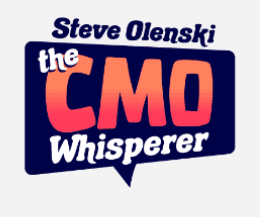Cholesterol and Eggs: Debunking the Myth
Intro
In recent years, the relationship between cholesterol and eggs has been widely discussed, leading to a common misconception that eggs, being high in cholesterol, are bad for your health. However, the reality is that consuming eggs doesn’t automatically result in increased cholesterol levels. In fact, it’s time to focus on reducing your intake of sugar, processed foods, and alcohol to lower cholesterol naturally.
Cholesterol and Eggs: A Common Misconception
It’s often heard that eggs, particularly the yolk, are a leading cause of high cholesterol due to their high cholesterol content. However, this is not entirely accurate. The impact of dietary cholesterol on our bodies doesn’t operate in such a straightforward manner. The cholesterol levels in our bodies are not solely dependent on the cholesterol intake from our diets. When we consume foods rich in dietary cholesterol, like eggs, our body has a natural mechanism to balance things out by producing less cholesterol. So, contrary to the popular belief, consuming eggs doesn’t necessarily lead to an increase in cholesterol levels in the blood. The key is to understand the difference between dietary cholesterol and blood cholesterol. Therefore, while eggs do contain cholesterol, it’s not the cholesterol in eggs that is concerning but rather the accompanying saturated fats that come along with certain methods of preparation and consumption.
The Real Cause of High Cholesterol
While dietary choices undeniably impact our cholesterol levels, it’s not just about the cholesterol content in the foods we eat. Rather, it’s the types of fats we consume that truly make a difference. Trans fats and saturated fats, commonly found in fast food, baked goods, and red meat, are the major villains in this story. These fats prompt our bodies to produce more cholesterol, leading to higher overall cholesterol levels. It’s crucial to note that this isn’t exclusive to our Diet alone. Cholesterol and midlife changes can also affect our cholesterol levels, making it even more critical to pay attention to our lifestyles as we grow older. Transitioning to healthier food choices and incorporating regular Exercise into our routine can play a substantial role in controlling cholesterol levels. The focus should not just be on high cholesterol foods, but rather on a holistic approach that considers all aspects of diet and Lifestyle.
The Dangers of Processed Foods
While the cholesterol content in natural foods like eggs might not be the primary cause for concern, the composition of processed foods certainly is. These foods are often loaded with unhealthy components such as trans fats and saturated fats, which are known to stimulate the body to produce more cholesterol. This, in turn, escalates the overall cholesterol levels in the body.
Another reason processed foods are a health hazard is the high levels of sodium they typically contain. Consuming excessive sodium can lead to hypertension or high blood pressure, a condition that may strain your heart and increase your risk of heart disease over time.
Added sugars are another red flag in processed foods. While sugar itself doesn’t contain cholesterol, it significantly affects how your body manages cholesterol. Regular intake of sugar-laden processed foods can lead to weight gain and obesity, a state that is associated with higher levels of bad (LDL) cholesterol and lower levels of good (HDL) cholesterol.
What’s more, the harmful ingredients in processed foods contribute to inflammation in the body. Today, inflammation is recognized as a critical contributor to heart disease. It triggers your body’s response to heal and repair, but chronic inflammation caused by regularly consuming processed foods can damage your heart and blood vessels.
Reducing processed foods in your diet, therefore, is a proactive measure in managing your cholesterol levels. It’s important to not just focus on foods that are known to contain cholesterol, but also those that trigger the body to produce more of it, or lead to conditions that indirectly raise cholesterol levels. Swapping processed foods with whole, unprocessed, and nutrient-rich foods is a beneficial step towards a healthier lifestyle and better cholesterol management.
Rethinking Your Sugar Intake
It’s a common misconception that because sugar doesn’t contain cholesterol, it doesn’t have an effect on your cholesterol levels. In actuality, consuming high amounts of sugar can disrupt your body’s ability to regulate cholesterol levels effectively. When you consume more sugar than your body needs, the excess is converted into fat. This increase in body fat contributes to an increase in LDL (low-density lipoprotein) cholesterol, also known as the “bad” cholesterol, and a decrease in HDL (high-density lipoprotein) cholesterol, or the “good” cholesterol.
Additionally, a diet high in sugar can lead to inflammation in the body. Chronic inflammation is not only associated with heart disease but can also interfere with how your body uses cholesterol. Consuming sugar also contributes to insulin resistance, a condition that can eventually lead to Diabetes if not managed properly. Insulin resistance can cause your liver to produce more cholesterol, leading to an overall increase in cholesterol levels.
So, how can you start rethinking your sugar intake? Begin by being aware of the hidden sugars in processed foods and drinks. Items like pasta sauces, bread, and even salad dressings can contain added sugars. Choose foods with natural sugars like fruits and vegetables. They not only offer the sweetness you may be craving but are packed with other beneficial nutrients as well.
It’s also worth noting that it’s not just the white granulated sugar you need to watch out for. Honey, agave nectar, and maple syrup, while natural, still count as added sugars and should be consumed in moderation. Remember, the goal is not to eliminate all sugar from your diet but to make smarter, healthier choices. Achieving a balance is key to managing cholesterol levels effectively.
In short, while sugar itself doesn’t contain cholesterol, it plays a significant role in how your body manages cholesterol levels. To improve your cholesterol profile, it’s essential to rethink your sugar intake.
The Effect of Alcohol on Cholesterol
While some research suggests that moderate alcohol intake can increase HDL cholesterol (the “good” cholesterol), it’s crucial to emphasize that this doesn’t give us a free pass to overindulge. Excessive alcohol consumption has been linked to a host of health problems, including heart disease, high blood pressure, and Stroke. Besides these health risks, heavy drinking can also contribute to weight gain, a condition known to increase LDL cholesterol (the “bad” cholesterol), and decrease HDL cholesterol. It’s also worth noting that certain types of alcoholic beverages, like mixed drinks, often come with added sugars. As previously discussed, high sugar intake can disrupt your body’s ability to regulate cholesterol effectively. It’s, therefore, crucial to consider these potential impacts before reaching for that extra glass. Drinking should be done responsibly, considering not only the potential impact on cholesterol levels but also the wider effects on health. This information isn’t meant to encourage alcohol consumption as a way to manage cholesterol. Remember, while moderate alcohol intake may have some health benefits, it should be approached cautiously, as it might not be the right strategy for everyone. Rather than relying on alcohol for potential cholesterol benefits, consider incorporating other heart-healthy habits into your lifestyle. These could include engaging in regular physical activity, maintaining a balanced diet, and limiting the intake of processed foods and sugars. By focusing on these broader lifestyle changes, you can work towards managing cholesterol levels in a more holistic and healthier way.
How to Lower Cholesterol Naturally
Managing cholesterol naturally involves making conscious, healthy lifestyle choices. A balanced diet should be your first line of defense. Incorporate a variety of fruits, vegetables, whole grains, and lean proteins into your meals. These foods are rich in nutrients and fiber that help maintain a healthy cholesterol level.
Physical activity is another crucial aspect. Regular exercise helps boost your body’s HDL, or “good,” cholesterol while reducing unhealthy LDL cholesterol. It doesn’t have to be anything strenuous; even moderate activities like brisk walking, cycling, or swimming can have a positive impact.
Tobacco smoke can lower your good cholesterol, increase your bad cholesterol and heart disease risk. If you smoke, quit. If you don’t smoke, don’t start. Avoiding secondhand smoke is also important.
Limiting alcohol intake is another beneficial step. While moderate alcohol consumption can potentially raise HDL cholesterol, overdoing it can lead to serious health problems, including high cholesterol.
Remember, managing cholesterol naturally is not about drastic, temporary changes. It’s about adopting sustainable, long-term habits. The journey to lower cholesterol is a marathon, not a sprint, so take it one step at a time. Try making one healthy lifestyle change and then work on the next one. With consistency, these changes can significantly improve your cholesterol levels and overall health.
In Conclusion: Eggs are Not the Enemy
Understanding the role of cholesterol in our bodies is critical. It is a vital compound used to create hormones, facilitate vitamin D production, and aid in the digestion of food. Incorporating eggs into your diet, when done in moderation, can indeed be a healthful decision. They are a nutrient-packed food source that can yield a variety of health benefits. The real key to managing cholesterol is not by eliminating specific foods like eggs but rather through adopting a healthier lifestyle. This involves consuming a balanced diet and engaging in regular physical activity. Looking at cholesterol management through a narrow lens by focusing solely on eggs overlooks the broader, more important issue of overall diet and lifestyle habits. It’s essential to note that a comprehensive, all-encompassing approach to health and well-being is far more beneficial and effective than isolating and eliminating individual food items. Therefore, we can safely debunk the myth: eggs are not the enemy when it comes to cholesterol management.
Don’t miss a recipe, tip, blog post or podcast. Subscribe to my mailing list today!
























